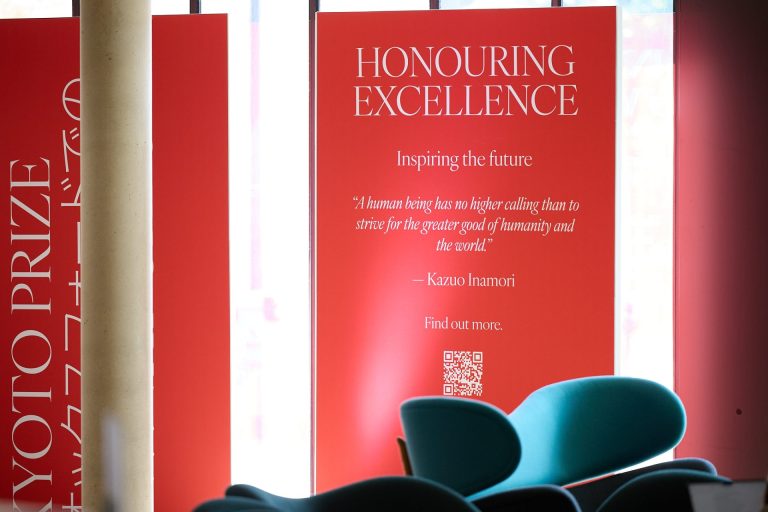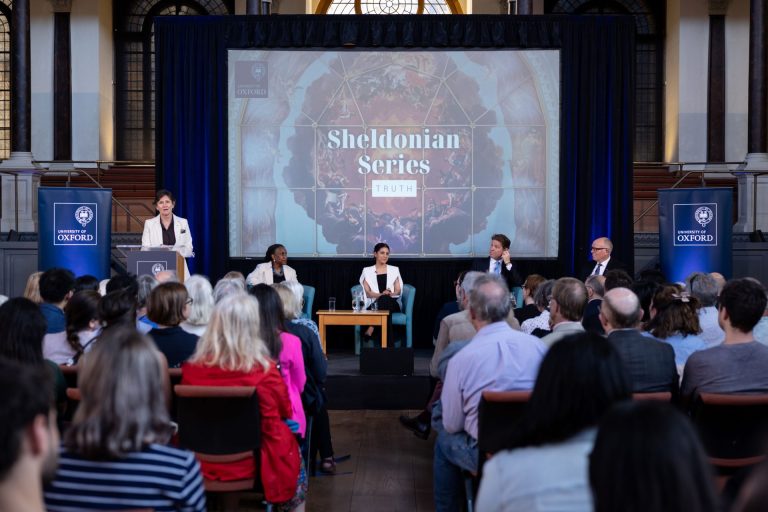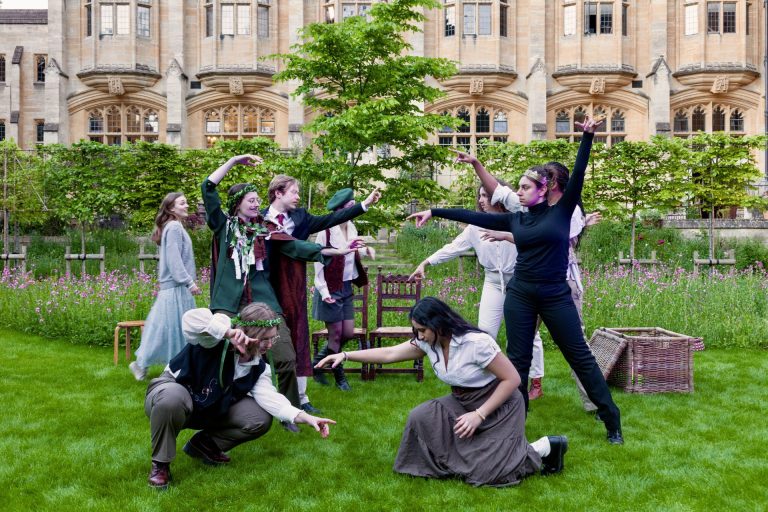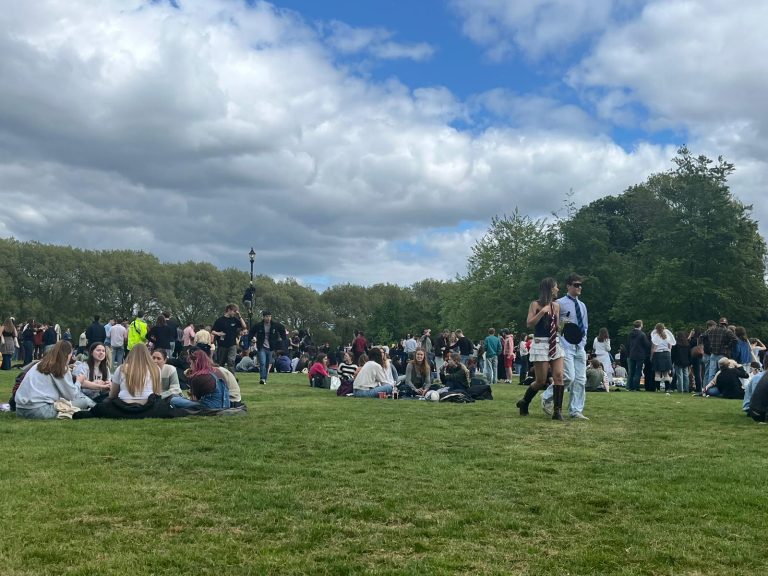The Oxford Fashion Gala was back and bigger than ever, with a larger venue, more ticket sales, and a grander vision. On Wednesday 14th May, the Town Hall was host to a night of ethereal glamour and exceptional young talent. Designers and models came together under this year’s theme of ‘Metamorphosis’, which had been teased through the Gala’s Instagram and Pinterest.
Before any further information came out, the Gala’s Pinterest was already a great sneak preview for what we could expect to see. Inspiration ranged from Iris van Herpen to Björk to Ancient Greek vases, and of course, butterflies. Think ethereal, think draped, think flowy.
A week prior, your Cherwell Fashion editor was lucky enough to get a chance to start building a sense of the designs through a sneak peek of the show at their dress rehearsal. Gearing up for the big day, the organisers of the Gala were on top form, thinking carefully about the right music to fit the theme and experimental ideas for the runway setup. It was delightful to see the range of models, from their diverse appearances to their different approaches to ‘the walk’. Of course, even in their rehearsal outfits, the models were still incredibly stylish.
During the rehearsal, I sat down with one of the designers at this year’s Gala, Axel Roy Lee. His interpretation of the theme is incredibly moving, with a recent bereavement inspiring him to channel his loved one’s distinctive style into his designs. Metamorphosis and change allowed him to express his tragedy through something beautiful, and pay homage to someone who had changed his life for the better. This touching sentiment reminds us of why fashion is so important to so many, providing a platform for us to connect emotionally through the medium of design, and proving that beauty lies as much in the concept as it does in the final product.
At last year’s Gala, Axel put his foot through the door of fashion design, and this year he planned to impress once again. Inspired by Paco Rabanne’s innovative ‘metal dresses’, his second piece reflected the scales of a snake, which are another major source of inspiration for the designer born in the year of the snake. When asked for a preview of the show, Axel fittingly told Cherwell: “Sparkly!”
Another designer, Olivia Moore, told me about her design, a beautiful dress with a heart at the centre. She was inspired by the butterfly, and a little known fact that during the metamorphosis, every part of the caterpillar breaks down except the heart, which is the only part that carries through to the final form. She sought to reflect what we can keep, rather than change. Her experience with sewing on-and-off since the age of sixteen has clearly been productive, with her dress doing a great job of representing her love of kitsch and circus style.
Alongside the personal resonance of ‘Metamorphosis’, the theme was not limited to what we saw on the runway: this year, all profits and Youni booking fees from the Oxford Fashion Gala were donated to Oxford Mutual Aid, a network providing emergency support and food parcels to those in need. Metamorphosis and changing society was at the heart of this year’s show, whether through creativity or raising awareness for the need for volunteers and donations to the charity.
On the night of the gala, I also had the chance to see behind the scenes, in the dressing room. So much glamour was packed into one historic place, with OFG President Isabel ‘Iggy’ Clarke sporting a sparkly, sheer dress which meant you couldn’t miss her. The space was crowded with people, from models to makeup artists to a very underdressed Cherwell section editor. Fashion photography was already underway, and from across the town hall we could hear the thumping beats of the DJs. With change after change, walk after walk, the models didn’t strut but swanned gracefully down the runway, embodying the theme.
Fashion enthusiast or not, this year’s Oxford Fashion Gala was definitely not one to miss. With music provided by Nightschool, The Booksellers, and Rough Edge Brass Band, the occasion was a visual and social thrill.











